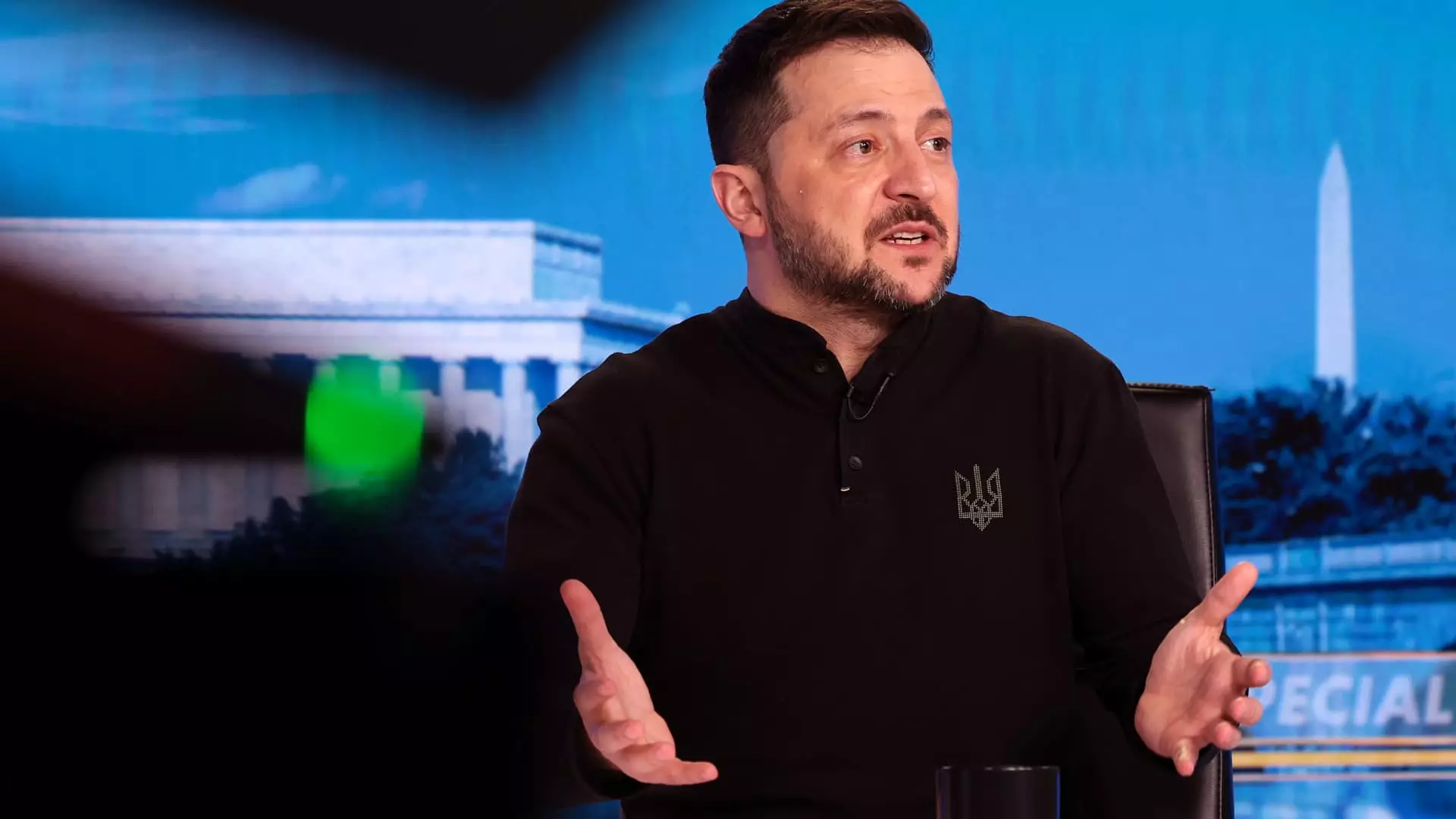The recent diplomatic entanglement between Ukrainian President Volodymyr Zelenskyy and American political figures has underscored the complexities of international relations amid ongoing conflict. Following a contentious meeting at the White House, Zelenskyy chose not to apologize for perceived disrespect directed towards former President Donald Trump and Vice President JD Vance. This standoff highlights not only the strained dynamics within U.S. political theater but also the precarious position Ukraine finds itself in regarding military support and diplomatic negotiations.
The heart of the conflict can be traced back to Zelenskyy’s strong rebuttal of Vice President Vance’s argument advocating for peace through diplomacy with Russia. Zelenskyy’s emphasis on the futility of negotiations, particularly given Russia’s history of violating agreements, illuminated the stark reality of Ukraine’s ongoing struggle. During the televised exchange, he pointedly questioned the viability of peace talks when the adversary has shown little regard for previous treaties. This confrontation acted as a catalyst, propelling the conversation into a broader debate over how the West, especially the U.S., responds to Russian aggression.
Zelenskyy’s critique of Vance’s diplomatic optimism raises critical questions about Western perceptions of the conflict. Are leaders underestimating the depth of Russia’s commitments to aggression? The Ukrainian president’s assertion that “He killed our people” serves as a poignant reminder that any call for dialogue must confront the grisly realities of warfare.
Tensions escalated as Trump and Vance accused Zelenskyy of failing to express gratitude, which they claimed could jeopardize support for Ukrainian resistance. In a complex turn, Trump asserted that Zelenskyy “overplayed his hand,” casting doubt on whether Ukraine could expect continued U.S. assistance. This rhetoric emphasizes a worrying trend in which perceived diplomatic slights could lead to tangible consequences for a nation facing existential threats.
Despite these tensions, Zelenskyy remained diplomatic, expressing appreciation for the aid that had been provided thus far while simultaneously articulating the dire need for sustained support. His acknowledgment that “it will be difficult without your support” reflects a sobering recognition of the stakes involved. The fragility of Ukraine’s situation underscores the urgency for strong U.S. commitment in the face of potential abandonment.
The response from European leaders following the White House meeting was swift and decisive. Declarations of increased support from NATO and EU officials signaled a clear commitment to Ukraine’s struggle against the aggressor. EU High Representative for Foreign Affairs, Kaja Kallas, remarked on the necessity for Europe to step up as a leader in this geopolitical landscape. Her assertion that “the free world needs a new leader” speaks volumes about the shifting dynamics of global power and responsibility.
This shift illustrates a potential pivot where European nations may no longer rely solely on U.S. leadership but take proactive steps in ensuring Ukraine’s capability to defend itself. Kallas’ statement indicates a recognition of a shared burden that expands beyond national borders, suggesting a collaborative approach to tackling the crisis.
As the dust settles over this diplomatic incident, the question remains whether Zelenskyy can salvage his relationship with the U.S. political landscape. His insistence that he seeks “strong relations” conveys a willingness to amend ties, but the underlying tensions reveal a more arduous journey ahead. Restoration of trust may hinge on navigating the volatile intersection of political rhetoric, public perception, and the formidable realities of war.
In closing, this intricate diplomatic episode encapsulates the difficulties inherent in international relations during a time of conflict. The discourse between Ukraine and U.S. leaders not only reflects immediate concerns over military aid but also evokes questions about the future of diplomacy and the global solidarity needed to combat aggression. The outcome of this debacle may very well shape not just U.S.-Ukrainian relations but the broader implications for international support in the struggle against authoritarianism.


Leave a Reply